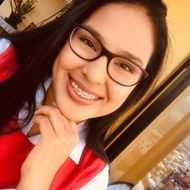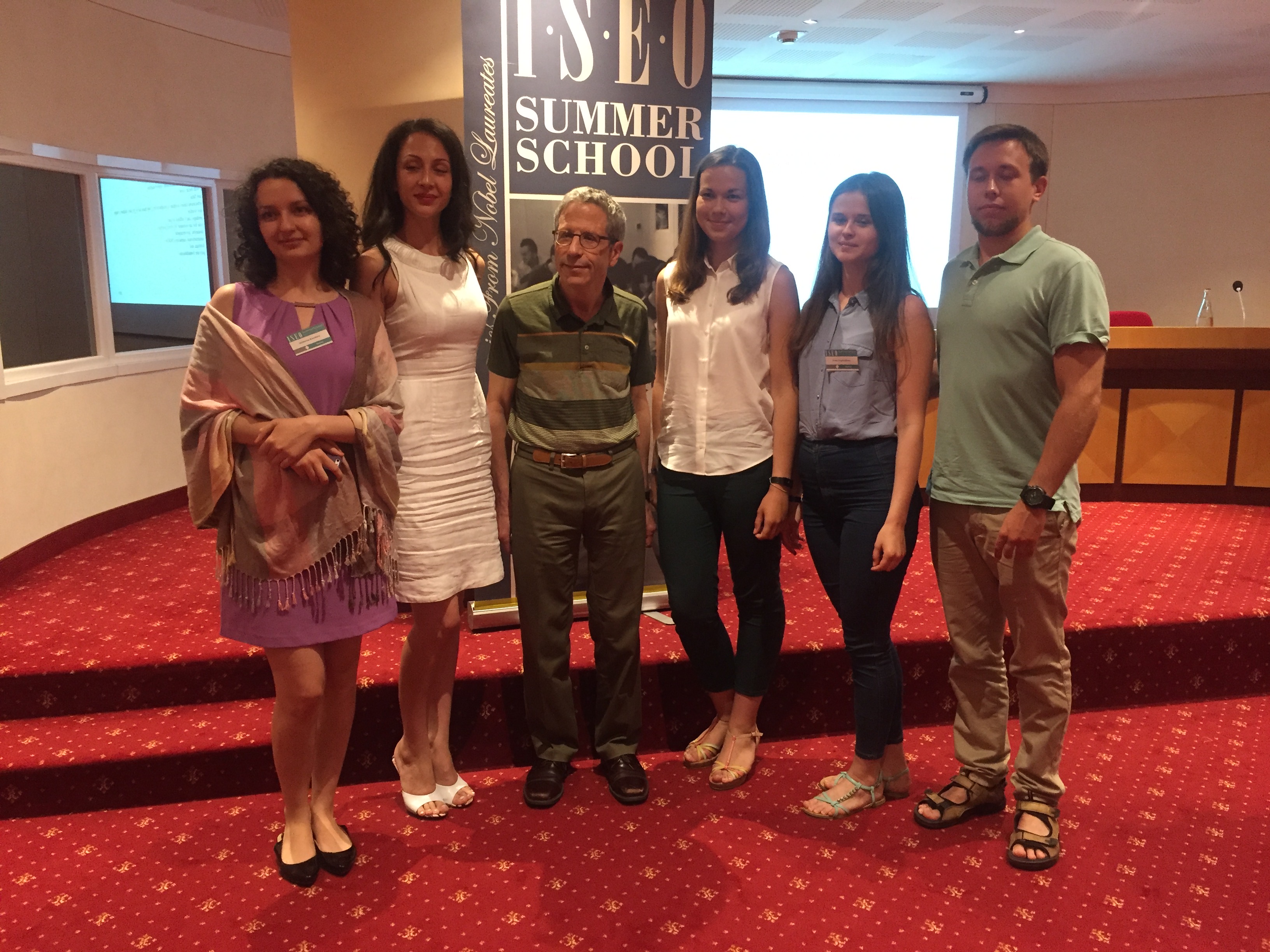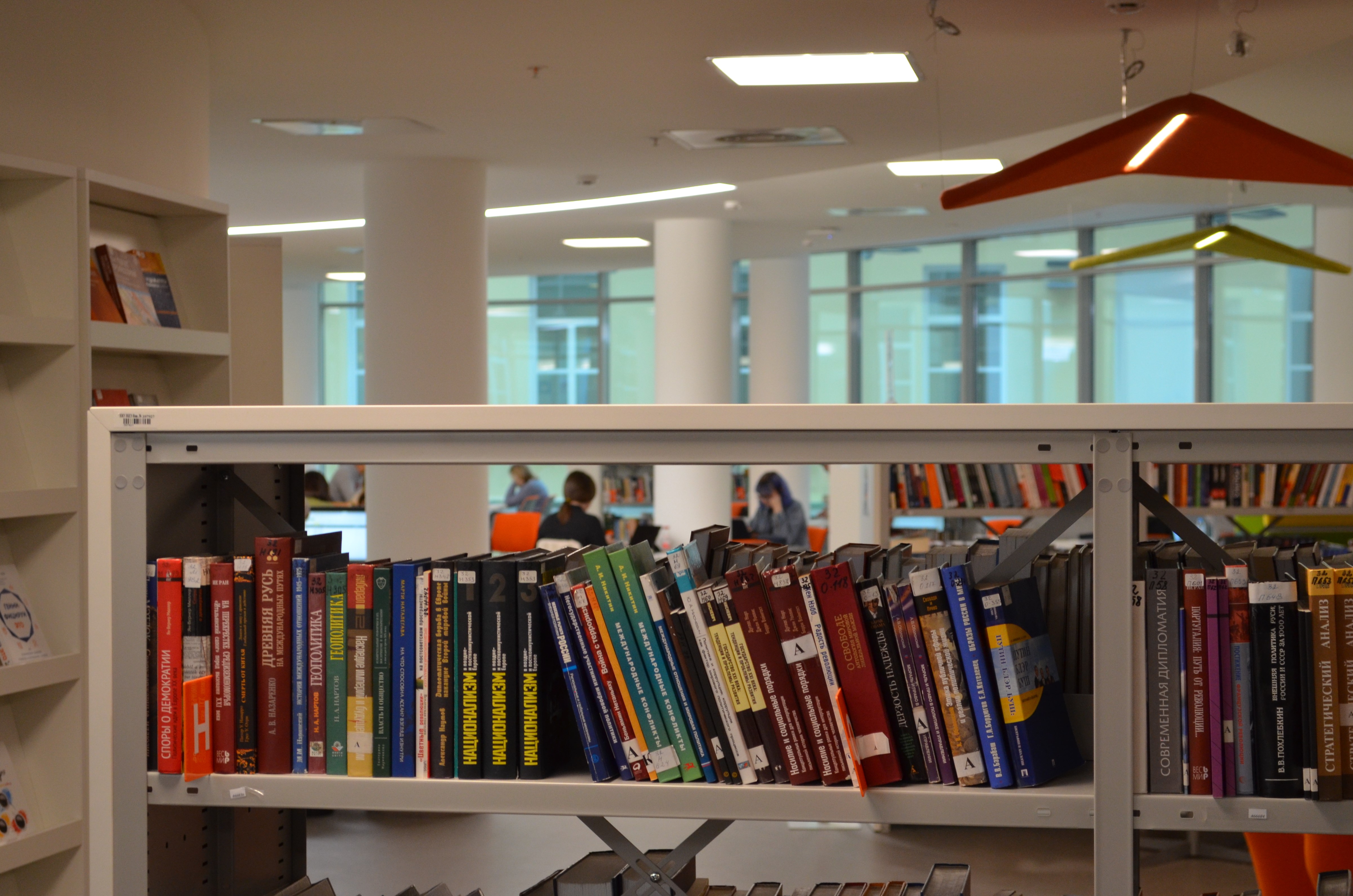Why Study at the Faculty of Economic Sciences

"What I like the most about FES is that I am able to meet very smart and cool people. I am so grateful to have met such incredible guys. Here you will have shining examples from your classmates to pursue your dreams and the persistence to be better every day." Antonella Alvarado, first year student
The Students:
The Faculty of Economic Sciences is one of the most selective educational institutions in Russia. The rules of admission is quite transparent — only those who achieve the highest grades on the National Standardized Tests are admitted. Applicants who have won various national and regional academic contests in math or economics have various options; they either get admission offers with no test score requirements or receive the highest score in tests corresponding to their contests.
Each year, there are about 700 freshmen (including ICEF) and more than half of the group are studying with tuition waivers and fellowships, whereas others pay tuition fees that vary from $1,000 to $7,000 per academic year. About half of students are non-Muscovites and more than 10% of students are international.

The average National Standardized Test score of the admitted students is one of the highest in Russia. This means that the students are extremely motivated, well prepared, and possess various skills that help them prosper in academia
Now, these students are more diverse because of the number of winners of student’s international contests from abroad and by exchange students from partner institutions of higher education.
All students are required to submit and present a research thesis. This, along with a certain number of credits and courses, is a graduation requirement. Here are some examples of undergraduate students' theses that illustrate the diversity of research opportunities at the Faculty of Economic Sciences. Career Lab website
Peer Effects and Dishonest Behavior in the Individual Projects
Features of M&A deals in the video game industry
Building an Investment Portfolio on the Russian Stock Market
The Effect of Social Skills on The Link Between Volunteering and Income
Alternating Least Squares in Generalized Linear Models
The Impact of Oil Prices on the Profitableness of Oil Companies Stocks in Russia
Testing the CAPM for the Russian Stock Market: A Multivariate GARCH Approach
Market Over- and Underreaction on News
Which types of economics do we teach at the Faculty of Economic Sciences:
Before 1991, there was no such thing as Russian economics; what was previously considered to be economics in Russia was a planned-economic (Marxist economics) or statistics approach. The students were taught to plan in a highly centralized socialist state economy. With establishing new educational institutions in 1992, Russian students began to study the same economics as American, Canadian, and German students. This was done by examining curriculums from these countries and aligning them with the popular textbooks in order to ensure the desired economic degree plans. Faculty of Economic Sciences Presentation with Departments and Research Labs and Centers

Why HSE
HSE University offers a variety of programs to students, allowing them to engage in unique opportunities. Some of these opportunities are but are not limited to, student organizations and research conferences and opportunities. In addition, there is an HSE day, which allows the students to come together and interact with students from other programs and countries in one of Moscow’s most beautiful parks. The goal of these organizations and events is to break barriers between cultures and allow for international and interdisciplinary understanding.
Student Clubs and Activities: Pursue your passion, whether it be through debate club, tourism, music, sports, programming, or media with fellow Russian and international classmates.
Student Council: This group comes together to express opinions publicly and make key decisions about educational and extracurricular activities here at HSE.
Sports at HSE: There is a wide variety of sports to choose from at HSE, from volleyball, aikido, gymnastics, weight training, badminton, basketball, and many others.
HSE traditions: The university’s symbol is a crow, which dates back to 1996 from the artist Anna Arenstein. HSE has annual events, such as graduation, HSE day, and Golden HSE, which is an award ceremony. International students support online
Why Moscow:
Moscow offers a lot to its inhabitants. While it is a big city, transportation around the city is quite accessible with the use of metros, trains, buses, trams, and Uber. The city is international, so there is a lot of access to different cultures, environments, and cuisines. Despite being a metropolitan city, there is still a low crime rate. Moscow offers a lot in terms of history through its museums, libraries, and monuments. In addition, the city is affordable. Students can get lunch from the canteens for usually less than 200 roubles (which is about the US $2, as of September 2023). Some museums are even free for students with valid student identification cards. Life in Moscow How much money to budget if you study in Moscow
Why Russia:
Russia is the world’s largest сountry by land area. The country fosters a lot of fascinating facts, such as Moscow having the tallest building in Europe and Lake Baikal being the largest freshwater body of water in the world. Bordering many different countries, Russia allows for a unique cultural experience through many travel opportunities. While living in Russia, it is easy to absorb everything it has to offer — history, literature, culture, ballets, and music. For example, in St. Petersburg, the Winter Palace (Hermitage) is open for tours, displaying where Peter the Great and Catherine the Great lived. While being a student at HSE, traveling short distances to other cities, such as St. Petersburg, Kazan, Nizhny, Lake Baikal, and Irkutsk, is quite affordable and pleasurable. A train ticket to St. Petersburg can be bought for about 1000 roubles (which is about US $15).
How all this makes you more competitive in looking for a job or a grad school?
Beyond adding to resumes, the connections made during study abroad leave lasting impacts. In some cases, they can add to connections for future job positions or opportunities. Studying abroad allows people to open their minds to many different aspects of life that cannot be experienced within their home countries. Valuable skills can be developed from studying abroad by experiencing new professors and more diverse discussion groups with fellow students. Alumni in Academia
Nile Miller, former intern in Moscow:
“I gained confidence in my ability to work and live with people from a variety of cultural and educational backgrounds, all while learning the ropes of life in one of the world’s largest cities. As I juggled tutoring, translation work, editing, and writing consultations in two different HSE locations across Moscow, I gained valuable experience managing many different projects simultaneously, which will no doubt be transferable to all of my future professional and academic endeavors.”
Graduate placement:
Our graduates have gone on to jobs at companies, and they have been hired by World Bank, IMF, Goldman Sachs, Morgan Stanley, ING, J.P. Morgan, Accenture, Oliver Wyman, BCG, Roland Berger, ATKearney, KPMG, Russian Central Bank, and Ministry of Economy, and an entire host of other companies and funds. They opened many successful startups in many business areas. About a hundred graduates continued to study at Ph.D. programs in top universities, with more than 25 graduates admitted in the last two years. Even more graduates of bachelor programs continue their education at HSE master programs or abroad. Some alumni now work at HSE as professors, TAs, and staff. Our Alumni
Modern Research Proves that Study Abroad Programs Enhance the Employability of Graduates
“Despite the great popularity of international educational mobility schemes, relatively little research has been conducted to explore their benefits. Using data on a large sample of recent Italian graduates, this paper investigates the extent to which participation in study abroad programs during university studies impacts subsequent employment likelihood. Our estimates show that studying abroad has a relatively large and statistically meaningful effect on the probability of being in employment 3 years after graduation.” Giorgio Di Pietro, Westminster Business School and IZA, Discussion Paper No. 7675
Do your study abroad in Russia at HSE Moscow at the Faculty of Economic Sciences!
International Admission information
International Admissions to HSE University Comprehensive Website and Applicants Portal
Have you spotted a typo?
Highlight it, click Ctrl+Enter and send us a message. Thank you for your help!
To be used only for spelling or punctuation mistakes.